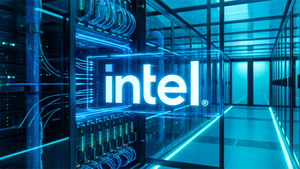
The landscape of global artificial intelligence is being reshaped by a landmark agreement, as Microsoft (NASDAQ: MSFT) prepares to ship over 60,000 advanced Nvidia (NASDAQ: NVDA) AI chips to the United Arab Emirates (UAE). This monumental deal, greenlit by the U.S. government, signifies a critical juncture in the international distribution of AI infrastructure, highlighting the strategic importance of AI hardware as a new geopolitical currency. Beyond merely boosting the UAE's computing power, this agreement underscores a calculated recalibration of international tech alliances and sets a precedent for how critical AI components will flow across borders in an increasingly complex global arena.
This multi-billion dollar initiative, part of Microsoft's broader $15.2 billion investment in the UAE's digital infrastructure through 2029, is poised to quadruple the nation's AI computing capacity. It represents not just a commercial transaction but a strategic partnership designed to solidify the UAE's position as a burgeoning AI hub while navigating the intricate web of U.S. export controls and geopolitical rivalries. The approval of this deal by the U.S. Commerce Department, under "stringent" safeguards, signals a nuanced approach to technology sharing with key allies, balancing national security concerns with the imperative of fostering global AI innovation.
The Engine Room of Tomorrow: Unpacking the Microsoft-Nvidia-UAE AI Hardware Deal
At the heart of this transformative agreement lies the shipment of more than 60,000 advanced Nvidia chips, specifically including the cutting-edge GB300 Grace Blackwell chips. This represents a staggering influx of compute power, equivalent to an additional 60,400 A100 chips, dramatically enhancing the UAE's ability to process and develop sophisticated AI models. Prior to this, Microsoft had already amassed the equivalent of 21,500 Nvidia A100 GPUs (a mix of A100, H100, and H200 chips) in the UAE under previous licenses. The new generation of GB300 chips offers unprecedented performance for large language models and other generative AI applications, marking a significant leap beyond existing A100 or H100 architectures in terms of processing capability, interconnectivity, and energy efficiency.
The deal involves a consortium of powerful players. Microsoft is the primary facilitator, leveraging its deep partnership with the UAE's sovereign AI company, G42, in which Microsoft holds a $1.5 billion equity investment. Dell Technologies (NYSE: DELL) also plays a crucial role, supplying equipment valued at approximately $5.8 billion to IREN, a data center operator. IREN, in turn, will provide Microsoft with access to these Nvidia GB300 GPUs through a $9.7 billion multi-year cloud services contract. This intricate web of partnerships ensures that the advanced GPUs deployed in the UAE will power access to a diverse range of AI models, including those from OpenAI, Anthropic, various open-source providers, and Microsoft's own AI offerings like Copilot.
The U.S. Commerce Department's approval of this deal in September, under what Microsoft President Brad Smith termed "stringent" safeguards, is a pivotal element. It marks a departure from earlier Biden-era restrictions that had limited the UAE's access to advanced U.S. chips, reflecting a willingness by the Trump administration to share critical AI infrastructure with strategic allies. This approval followed a May agreement between the U.S. and UAE presidents to establish an AI data center campus in Abu Dhabi, underscoring the high-level diplomatic backing for such technology transfers. The sophisticated nature of these chips, combined with their dual-use potential, necessitates such stringent oversight, ensuring they are used in alignment with U.S. strategic interests and do not fall into unauthorized hands.
Initial reactions from the AI research community and industry experts highlight the dual nature of this development. While acknowledging the significant boost to AI capabilities in the UAE and the potential for new research and development, there are also discussions around the implications for global AI governance and the potential for a more fragmented, yet strategically aligned, global AI landscape. Experts note that the sheer scale of the chip deployment will enable the UAE to host and run some of the most demanding AI workloads, potentially attracting top AI talent and further cementing its status as a regional AI powerhouse.
Reshaping the AI Ecosystem: Competitive Dynamics and Strategic Advantages
This colossal AI chip deal is set to profoundly impact major AI companies, tech giants, and nascent startups alike, recalibrating competitive dynamics and market positioning across the globe. Microsoft stands to be a primary beneficiary, not only solidifying its strategic partnership with G42 and expanding its cloud infrastructure footprint in a key growth region but also reinforcing its position as a leading provider of AI services globally. By enabling access to cutting-edge Nvidia GPUs, Microsoft Azure's cloud offerings in the UAE will become even more attractive, drawing in enterprises and developers eager to leverage advanced AI capabilities.
Nvidia, as the undisputed leader in AI accelerators, further cements its market dominance through this deal. The sale of tens of thousands of its most advanced chips, particularly the GB300 Grace Blackwell, underscores the insatiable demand for its hardware and its critical role as the foundational technology provider for the global AI boom. This agreement ensures continued revenue streams and reinforces Nvidia's ecosystem, making it even harder for competitors to challenge its lead in the high-performance AI chip market. The deal also serves as a testament to Nvidia's adaptability in navigating complex export control landscapes, working with governments to facilitate strategic sales.
For G42, the UAE's sovereign AI company, this deal is transformational. It provides unparalleled access to the hardware necessary to realize its ambitious AI development goals, positioning it at the forefront of AI innovation in the Middle East and beyond. This influx of compute power will enable G42 to develop and deploy more sophisticated AI models, offer advanced AI services, and attract significant talent. The partnership with Microsoft also helps G42 realign its technology strategy towards U.S. standards and protocols, addressing previous concerns in Washington regarding its ties to China and enhancing its credibility as a trusted international AI partner.
The competitive implications for other major AI labs and tech companies are significant. While the deal directly benefits the involved parties, it indirectly raises the bar for AI infrastructure investment globally. Companies without similar access to advanced hardware or strategic partnerships may find themselves at a disadvantage in the race to develop and deploy next-generation AI. This could lead to further consolidation in the AI industry, with larger players able to secure critical resources, while startups might increasingly rely on cloud providers offering access to such hardware. The deal also highlights the growing trend of national and regional AI hubs emerging, driven by strategic investments in computing power.
The New Silicon Curtain: Broader Implications and Geopolitical Chess Moves
This Microsoft-Nvidia-UAE agreement is not merely a commercial transaction; it is a significant move in the broader geopolitical chess game surrounding artificial intelligence, illustrating the emergence of what some are calling a "New Silicon Curtain." It underscores that access to advanced AI hardware is no longer just an economic advantage but a critical component of national security and strategic influence. The deal fits squarely into the trend of nations vying for technological sovereignty, where control over computing power, data, and skilled talent dictates future power dynamics.
The immediate impact is a substantial boost to the UAE's AI capabilities, positioning it as a key player in the global AI landscape. This enhanced capacity will allow the UAE to accelerate its AI research, develop advanced applications, and potentially attract a significant portion of the world's AI talent and investment. However, the deal also carries potential concerns, particularly regarding the dual-use nature of AI technology. While stringent safeguards are in place, the rapid proliferation of advanced AI capabilities raises questions about ethical deployment, data privacy, and the potential for misuse, issues that international bodies and governments are still grappling with.
This development can be compared to previous technological milestones, such as the space race or the early days of nuclear proliferation, where access to cutting-edge technology conferred significant strategic advantages. However, AI's pervasive nature means its impact could be even more far-reaching, touching every aspect of economy, society, and defense. The U.S. approval of this deal, particularly under the Trump administration, signals a strategic pivot: rather than solely restricting access, the U.S. is now selectively enabling allies with critical AI infrastructure, aiming to build a network of trusted partners in the global AI ecosystem, particularly in contrast to its aggressive export controls targeting China.
The UAE's strategic importance in this context cannot be overstated. Its ability to secure these chips is intrinsically linked to its pledge to invest $1.4 trillion in U.S. energy and AI-related projects. Furthermore, G42's previous ties to China had been a point of concern for Washington. This deal, coupled with G42's efforts to align with U.S. AI development and deployment standards, suggests a calculated recalibration by the UAE to balance its international relationships and ensure access to indispensable Western technology. This move highlights the complex diplomatic dance countries must perform to secure their technological futures amidst escalating geopolitical tensions.
The Horizon of AI: Future Developments and Strategic Challenges
Looking ahead, this landmark deal is expected to catalyze a cascade of near-term and long-term developments in the AI sector, both within the UAE and across the global landscape. In the near term, we can anticipate a rapid expansion of AI-powered services and applications within the UAE, ranging from advanced smart city initiatives and healthcare diagnostics to sophisticated financial modeling and energy optimization. The sheer volume of compute power will enable local enterprises and research institutions to tackle previously insurmountable AI challenges, fostering an environment ripe for innovation and entrepreneurial growth.
Longer term, this deal could solidify the UAE's role as a critical hub for AI research and development, potentially attracting further foreign direct investment and leading to the establishment of specialized AI clusters. The availability of such powerful infrastructure could also pave the way for the development of sovereign large language models and other foundational AI technologies tailored to regional languages and cultural contexts. Experts predict that this strategic investment will not only accelerate the UAE's digital transformation but also position it as a significant contributor to global AI governance discussions, given its newfound capabilities and strategic partnerships.
However, several challenges need to be addressed. The rapid scaling of AI infrastructure demands a corresponding increase in skilled AI talent, making investment in education and workforce development paramount. Energy consumption for these massive data centers is another critical consideration, necessitating sustainable energy solutions and efficient cooling technologies. Furthermore, as the UAE becomes a major AI data processing hub, robust cybersecurity measures and data governance frameworks will be essential to protect sensitive information and maintain trust.
What experts predict will happen next is a likely increase in similar strategic technology transfer agreements between the U.S. and its allies, as Washington seeks to build a resilient, secure, and allied AI ecosystem. This could lead to a more defined "friend-shoring" of critical AI supply chains, where technology flows preferentially among trusted partners. We may also see other nations, particularly those in strategically important regions, pursuing similar deals to secure their own AI futures, intensifying the global competition for advanced chips and AI talent.
A New Era of AI Geopolitics: A Comprehensive Wrap-Up
The Microsoft-Nvidia-UAE AI chip deal represents a pivotal moment in the history of artificial intelligence, transcending a simple commercial agreement to become a significant geopolitical and economic event. The key takeaway is the profound strategic importance of AI hardware distribution, which has emerged as a central pillar of national power and international relations. This deal highlights how advanced semiconductors are no longer mere components but critical instruments of statecraft, shaping alliances and influencing the global balance of power.
This development's significance in AI history cannot be overstated. It marks a shift from a purely market-driven distribution of technology to one heavily influenced by geopolitical considerations and strategic partnerships. It underscores the U.S.'s evolving strategy of selectively empowering allies with advanced AI capabilities, aiming to create a robust, secure, and allied AI ecosystem. For the UAE, it signifies a massive leap forward in its AI ambitions, cementing its status as a regional leader and a key player on the global AI stage.
Looking ahead, the long-term impact of this deal will likely be felt across multiple dimensions. Economically, it will spur innovation and growth in the UAE's digital sector, attracting further investment and talent. Geopolitically, it will deepen the strategic alignment between the U.S. and the UAE, while also setting a precedent for how critical AI infrastructure will be shared and governed internationally. The "New Silicon Curtain" will likely become more defined, with technology flows increasingly directed along lines of strategic alliance rather than purely commercial efficiency.
In the coming weeks and months, observers should watch for further details on the implementation of the "stringent safeguards" and any subsequent agreements that might emerge from this new strategic approach. The reactions from other nations, particularly those navigating their own AI ambitions amidst U.S.-China tensions, will also be crucial indicators of how this evolving landscape will take shape. This deal is not an endpoint but a powerful harbinger of a new era in AI geopolitics, where hardware is king, and strategic partnerships dictate the future of innovation.
This content is intended for informational purposes only and represents analysis of current AI developments.
TokenRing AI delivers enterprise-grade solutions for multi-agent AI workflow orchestration, AI-powered development tools, and seamless remote collaboration platforms.
For more information, visit https://www.tokenring.ai/.




